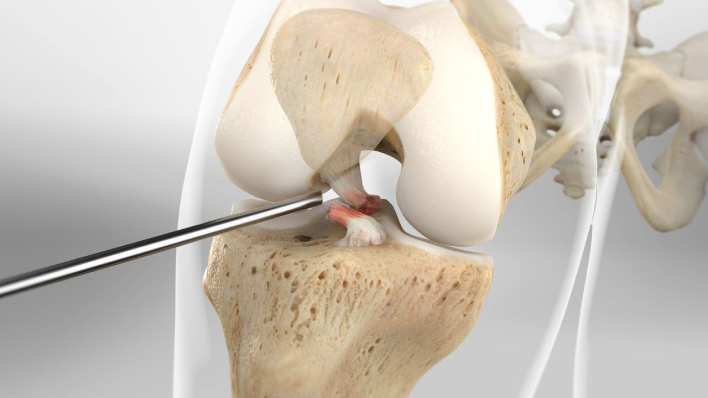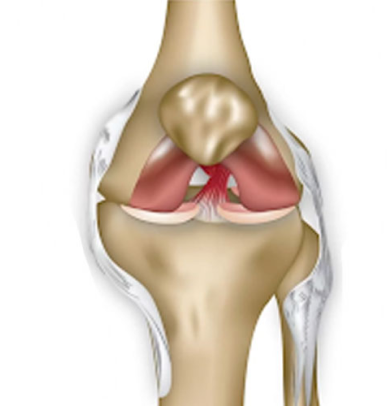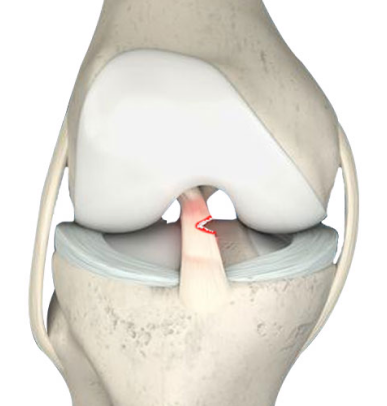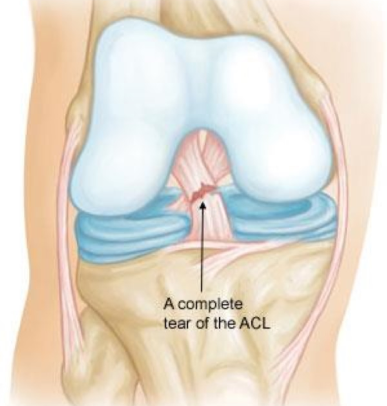MCL Reconstruction

Understanding
MCL Reconstruction in Dubai
Restoring Mobility and Strength : A Path to Pain-Free Living
When a medial collateral ligament (MCL) injury disrupts daily movement or keeps you away from the activities you love, it can feel frustrating and limiting. The knee plays a vital role in balance, stability, and mobility, so when the MCL is torn or severely damaged, simple tasks like walking, climbing stairs, or enjoying sports become a challenge.
MCL repair surgery in Dubai offers a reliable way to restore strength and stability, helping patients return to an active and confident lifestyle.
At Tarabichi Joint Care, we specialize in advanced techniques for MCL reconstruction, combining precision surgery with personalized rehabilitation to ensure every patient regains both function and peace of mind.
The Concept of MCL Reconstruction
MCL reconstruction is a surgical procedure used to restore the stability of the knee when the medial collateral ligament is completely torn or too damaged to heal on its own.
Instead of repairing the injured ligament directly, the procedure involves creating a new ligament using a graft, which may be taken from the patient’s own tissue (autograft) or from a donor (allograft). This graft is positioned and secured to replicate the natural function of the MCL, allowing the knee to regain strength, balance, and mobility.
The goal of MCL reconstruction is to help patients return to their normal activities without pain or instability, while also reducing the risk of long-term complications such as chronic knee weakness or arthritis.
Anatomy of the MCL
The medial collateral ligament is a strong band of tissue located on the inner side of the knee. It links the thigh bone (femur) to the shin bone (tibia) and protects the knee from bending inward excessively. The MCL works closely with other ligaments to maintain knee alignment and allow smooth movement.
Causes of MCL Tear Injuries
MCL injuries are often the result of:
- Sports injuries – common in football, basketball, and skiing, where sudden twisting or impact is frequent.
- Direct trauma – a forceful blow to the outer knee.
- Accidents – falls or collisions that overstretch the ligament.
In fact, sports-related injuries account for nearly 40% of MCL tear cases globally.
Types of MCL Injuries
MCL injuries can vary in severity and are categorized into three main grades:

Grade 1
Mild sprain with slight stretching of the ligament.

Grade 2
Partial tear causing moderate pain and instability.

Grade 3
Complete tear where the ligament is fully ruptured, often requiring MCL repair surgery in Dubai.
When is MCL Tear Treatment Recommended?
Not all MCL injuries require surgery. Conservative management, like bracing and physical therapy, may be enough for mild sprains.
However, MCL reconstruction is recommended when:
- There is a complete ligament tear.
- Conservative treatments fail to restore stability.
- The injury is combined with damage to other knee ligaments.
- Patients experience recurring instability affecting daily life.
Candidates Eligible for MCL Reconstruction Surgery
Candidates for MCL reconstruction surgery typically include:
- Athletes or active individuals who want to return to high-performance activities.
- Patients with persistent knee instability or pain.
- Individuals with combined ligament injuries (such as ACL and MCL tears).
- Patients in good general health without severe arthritis in the knee.
If you fall into any of these categories and have experienced an MCL tear, consulting an orthopedic doctor at Tarabichi Joint Care can help you decide if you requiresurgery.
Symptoms of an MCL Tear Injury
Typical signs of an MCL tear injury in Dubai include:
- Sharp pain on the inner side of the knee.
- Swelling and tenderness around the joint.
- A feeling that the knee “gives way.”
- Difficulty bending or straightening the knee fully.
Benefits of MCL Reconstruction Surgery in Dubai at Tarabichi Joint Care
At Tarabichi Joint Care, we offer several benefits for patients undergoing MCL reconstruction surgery in Dubai:
- Restores knee stability and alignment.
- Enables safe return to sports and an active lifestyle.
- Reduces risk of long-term knee problems, such as arthritis.
- Improves overall mobility and quality of life.
What Studies Say?
Studies show that over 85% of patients undergoing MCL reconstruction regain near-normal function within 6–9 months.
Diagnosis at Tarabichi Joint Care
Accurate diagnosis is crucial for treatment planning. At Tarabichi Joint Care, we use:
- Physical examination to assess knee stability.
- MRI scans for detailed imaging of the ligament and associated structures.
- X-rays to rule out fractures.
Treatment Options
- Non-Surgical Care
- Bracing and immobilization
- Physical therapy and strengthening exercises
- Anti-inflammatory medications
- MCL Reconstruction Surgery
In severe cases, MCL reconstruction in Dubai is performed using grafts (often from the patient’s own tissue or donor tissue) to replace the damaged ligament. This surgery restores stability and prevents long-term complications.
At Tarabichi Joint Care, minimally invasive approaches are preferred, ensuring quicker recovery and reduced postoperative discomfort.
Deciding to Get MCL Reconstruction in Dubai?
Consider Tarabichi Joint Care
Choosing surgery can feel overwhelming, but timely treatment prevents chronic instability and further joint damage. At Tarabichi Joint Care, our team of knee specialists evaluates each patient’s lifestyle, activity level, and injury severity before recommending MCL repair surgery in Dubai. With a combination of surgical expertise, advanced technology, and personalized rehabilitation, we ensure patients receive the best possible outcome.
Whether you are an athlete aiming to get back to peak performance or someone seeking freedom from knee pain in daily activities, we provide trusted expertise in MCL reconstruction, helping you move forward with confidence.
Book a consultation for a detailed discussion.
FAQs about MCL Reconstruction Surgery
MCL reconstruction involves replacing the damaged ligament with a graft, usually from the patient’s own tissue or a donor, to restore knee stability and function.
While generally safe, risks may include infection, stiffness, graft failure, or prolonged swelling. These are rare and minimized with expert surgical care.
Patients may need to provide medical history records, imaging results (X-rays/MRI), a list of current medications, and pre-operative medical clearance.
Most patients regain good function within 6–9 months, with physical therapy having a key role in recovery.
Yes, rehabilitation is essential to rebuild strength, improve flexibility, and restore full knee movement.
Minor tears often heal with rest, bracing, and physiotherapy, but complete tears usually require reconstruction.
Active individuals, athletes, or patients with persistent knee instability despite conservative care are ideal candidates.

